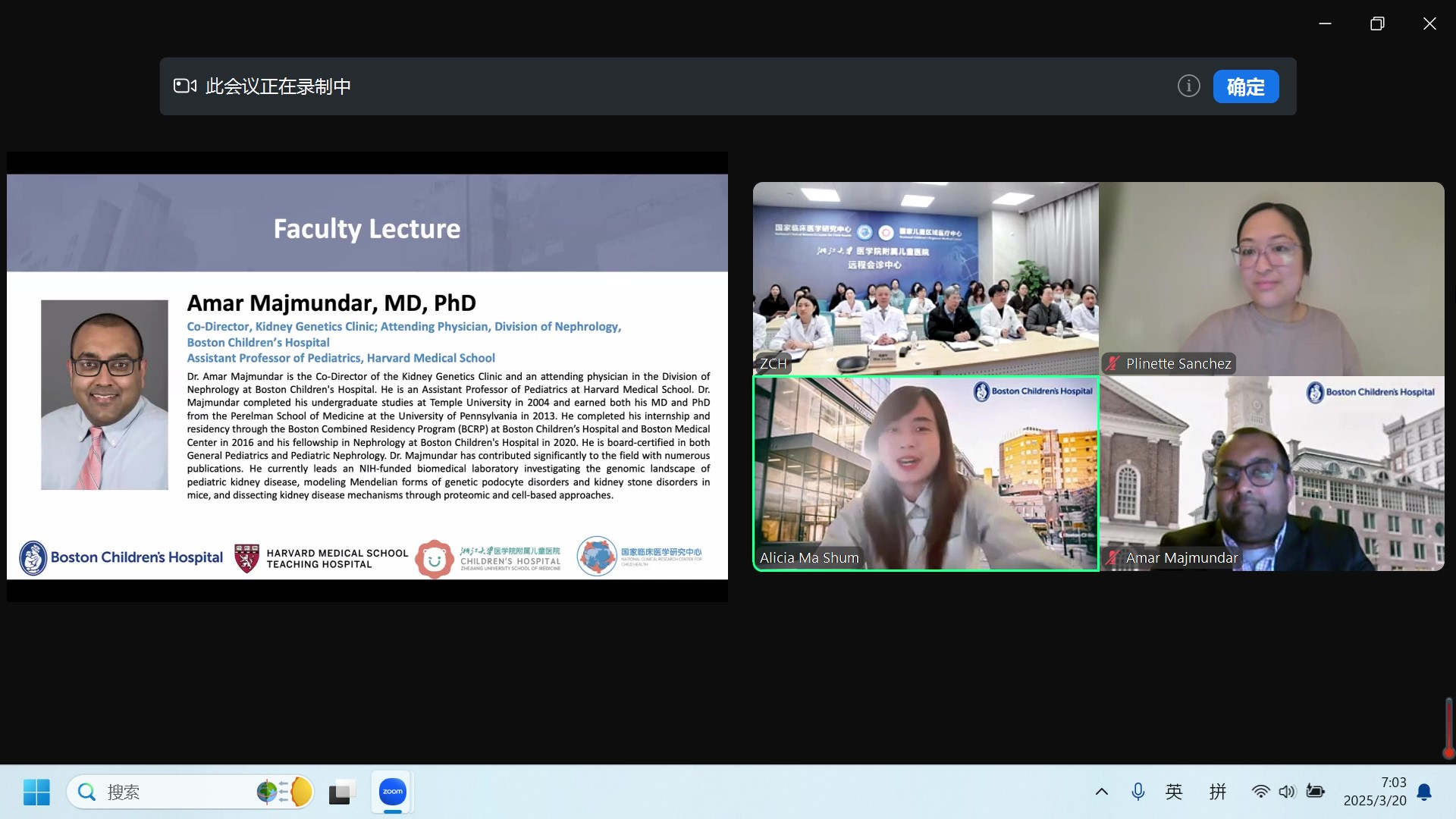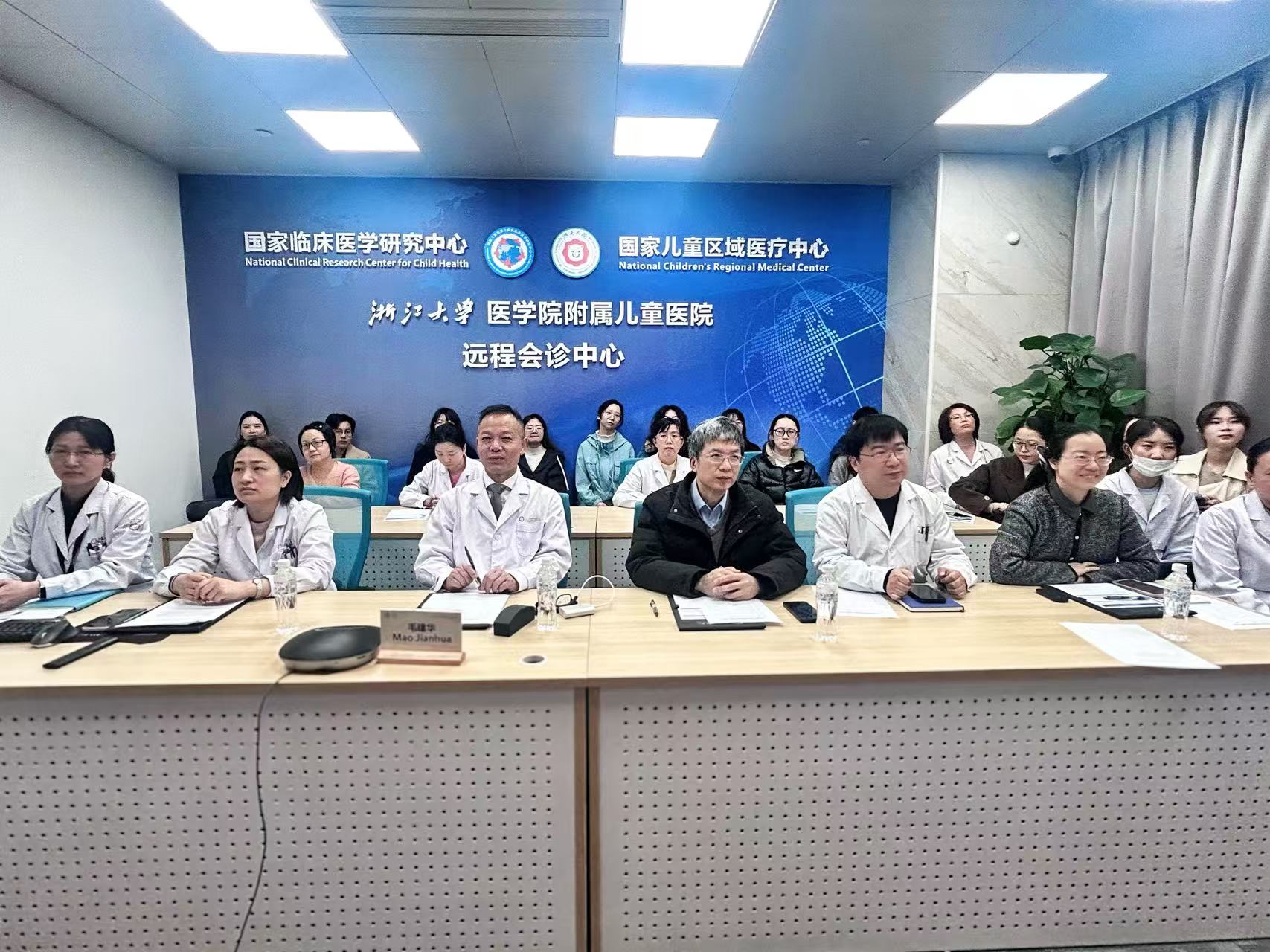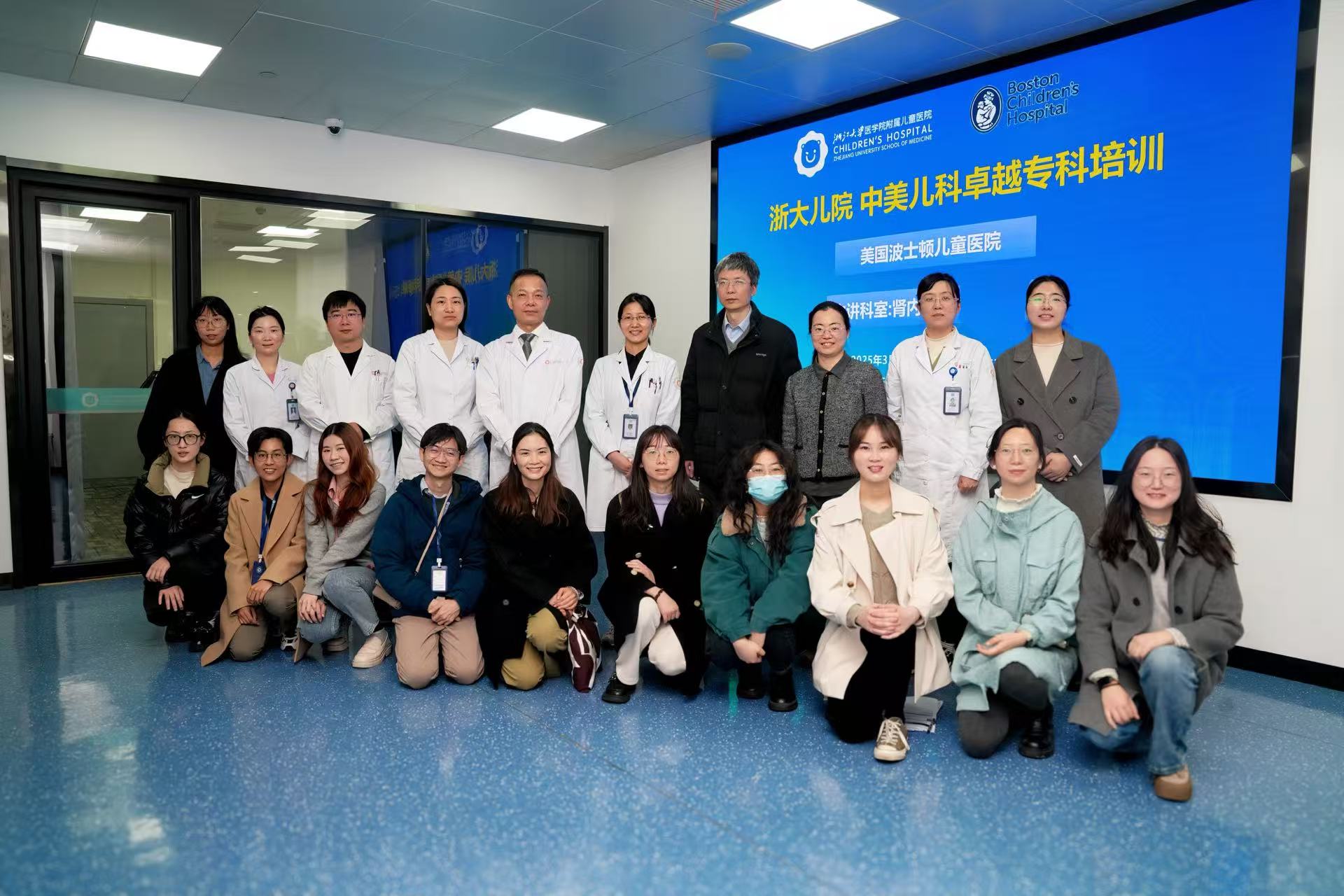Nephrology Department of ZCH Partners with Boston Children's Hospital for Specialty Training
On the morning of March 20, from 7:00 to 8:30 AM, a China-US Pediatric Specialty Training session was successfully hosted by the Department of Nephrology at Children's Hospital of Zhejiang University School of Medicine (Binjiang Campus). The training focused on whole-exome sequencing study to identify novel gene in hereditary kidney diseases. Chaired by Professor Mao Jianhua, Vice President of Children's Hospital Zhejiang University School of Medicine (ZCH), the session featured a lecture by Professor Amar Majmundar, Co-Director of the Kidney Genetics Clinic at Boston Children’s Hospital. Attendees included physicians and graduate students from nephrology, genetic metabolism, and neurology departments.

The training began with Dr. Huang Limin presenting a clinical case of a 13-year-old male patient initially diagnosed with hyperuricemia and stage 2 chronic kidney disease. Whole-exome sequencing revealed a novel mutation in the TALIN1 gene. Given that several of the patient’s relatives exhibited varying degrees of renal metabolic dysfunction, extended genetic testing was conducted across three generations, leading to the construction of a 29-member family pedigree. Longitudinal follow-up revealed progressive increases in serum uric acid levels, accompanied by the onset of proteinuria.
Using this case as a reference, Professor Majmundar led an in-depth discussion on the topic of whole-exome sequencing for discovering novel genetic variants in hereditary kidney diseases. Based on questions posted by the nephrology team of ZCH, Professor Majmundar illustrated the genetic basis of hereditary nephropathies and nephrolithiasis, emphasizing gene discovery through advanced sequencing technologies. He reviewed the evolution of genetic research, from traditional family-based studies to modern large-scale population analyses. The discussion addressed monogenic (Mendelian) kidney disorders, which are typically caused by rare, highly penetrant genetic variants. Professor Majmundar emphasized the importance of identifying these genetic variants, particularly those affecting protein function. Illustrating the impact of genetic mutations on renal pathophysiology, he highlighted key genes associated with nephrolithiasis, including AGXT, GRHPR, and HOGA1, as well as other genes involved in renal solute handling such as cystinuria, hereditary rickets, and Bartter syndrome. Specific gene discovery cases were presented, such as the association between SLC26A1 variants and early-onset nephrolithiasis, and the relationship between FOXI1 variants and kidney stone disease. A critical aspect of the lecture was the functional validation of genetic variants, emphasizing the need for biochemical and cellular assays to confirm pathogenicity. He also discussed the role of non-coding variants and copy number variations (CNVs) in kidney diseases, as well as the potential of large-scale biobank studies to identify rare disease-associated variants. Drawing on extensive clinical and research experience, Professor Majmundar provided valuable insights into the application of genomic medicine in pediatric nephrology.

Following the lecture, experts from both institutions engaged in a heated discussion on key challenges and future research priorities. Professor Mao Jianhua expressed appreciation for Professor Majmundar’s comprehensive presentation and explored topics such as the validation of novel mutations identified through whole-exome sequencing and their hereditary implications. Professor Amar Majmundar and Professor Mao outlined future shared research directions, including investigations into non-coding variants, in-depth analyses of gene-phenotype associations, and the development of novel therapeutic approaches. Additionally, experts from two countries explored how international collaboration between two children’s hospitals and data sharing can accelerate gene discovery. They totally agreed that continued research and cooperation is a key driver for progress in the field of nephrogenetics.






